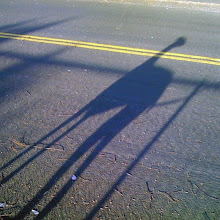I'm a bit panicked on the 2500 by 9/15 project, to tell the truth, and I always do, dear readers. You just have to hear it right. So here's another one from the vaults, an essay from early 1988, so it's currently old enough to drink. If nothing else, maybe it will get a bunch of you to rent
The Band Wagon.
HEARTH ACHE
Like too many others, I would guess, I’ve spent too much of my time fancying I’m Fred Astaire. Not as a dancer, of course, although the non-verbal eloquence would be something dear. (Oh to make love without words.) Rather, it’s the implacable cool I’ve savored, his aloofness; he wears loneliness as sportingly as his tux and tails.
This one particular evening of dreaming, it was New Year’s Eve, and the whole house was asleep. LuAnn, my oldest sister, a nurse, would be off to work at Morristown Memorial early in the morning. Linda, my other sister, and Richard, her apartment-mate, waited each other out long enough that they fell asleep where they sat, as another holiday escaped them without event. Oddly, my mom held out the longest, as if the early evening liquor could only pick her up; yet, by eleven-thirty she, too, ended up the way she ends up every night--head slumped left, legs recliner elevated, eyes shut tight.
I was still working hard to get along. Every trip back to East Hanover, to a place called “home,” tends to disintegrate, as if my family’s bodies fall away and we have only teeth and bone left, rubbing each other raw. To keep this night something like bearable, I went out of my way to find family entertainment that even I would like, so I grabbed
The Band Wagon at the video store.
No one else made it past the opening credits. Earlier, we had played a game of Trivial Pursuit, and as always, the game ended before anyone had won. In a burst of silliness, I tried to turn it into a drinking game, in which a wrong answer meant a healthy swig. Me, I never even played such games as an undergrad, couldn’t understand the need to beat around the drinking bush. But at home, games seemed necessary as a way to fill the time. Talking itself was too difficult--our tongues, too, were gone in the family of teeth and bone. All we could talk about was food we had eaten or would eat, or about the weather, or the latest in a string of inconveniences, as the world worked hard to muck up whatever a Yatchisin had planned. But my usual drink-talk was out, the banter that’s carved an entire language of my life in bars: pop philosophy, film, poetry, lust, and a slathering of pomposity--like a healthy head of beer--you don’t really want it, but it’s there just the same.
It seems the only thing we can do as a family is drink, slowly putting ourselves to sleep. After the game (and I, of course, got cranky, outraged by questions about comic strips in the literature category), true sleep came to everyone else as I plunked in the movie.
The Band Wagon is a sneaky musical. It opens with Fred Astaire on the train to New York, overhearing people claim his character is washed-up as a star. When recalling the film, most first remember its first large number, “Got a Shine on My Shoes,” in which Astaire turns pinball in a candy-colored arcade, setting the whole “machine” ablaze with his fits, taps, and turns. But
there’s a smaller number that precedes this one, an auto-love ballad, as it were. Astaire gets to watch another, still sterling star get mobbed as she leaves the Twentieth Century; he lags behind the crowd, waiting for Grand Central’s red carpet to clear. And then, he sings, and walks, both so much like the other--sweet and fragile, a cat on the clouds. It must be the exact voice he hears in his head; it’s easy to wonder why his lips must move for such a sound. It’s a voice of beauty without pretty, just as the walk is agile without bounce. The song is “(I’ll Go My Way) By Myself.”
I lay on the couch wanting to run these three minutes over and over as some sort of welcome to the New Year. I lay, alone, suckered by the song, the grace it makes of lonely peace. And then memory, of an earlier New Year’s, returned to me, as if I were in a film and the emulsion went edgy, and time did its zoom in and out trick, so I was then, there. I had plunged to a few days before that soon-to-be New Year, when I was too absorbed in something, puzzled by the now-forgotten. It was the person I was with who sensed something was up, so she headed out to the balcony, despite the December Baltimore cold. The street beneath the Hopkins House, my apartment building, always struck me as Emergency Highway: any siren anywhere in earshot would eventually wail its way down 39th Street. But that evening, something more was up.Between the Broadway Apartments and the other tallish buildings rising up the slight hill to the east, a pink glow licked at the low sky, almost like an intense dance of mercury lamps pointed at the clouds. The trucks were stopping there; we could just tell. Of course we went out.
An old apartment building, where I once lived, was nearly already gutted. The Buckingham Arms, where I sublet one summer, my first totally alone. A summer of wicked wind that left Charles Street a road so lost in broken branches it seemed a road lost in tree; a summer of my first, and very much eighteen-year-old, stab at playwriting, a soaper about old folks losing love, finding death; a summer of love (is every summer?), in which every lunch hour was precious, for my girlfriend lived that summer in her parented, suburban home. Everything came back at this death; it was like watching Industrial Light and Magic pour forth its ghosts at a film’s horrible end. I had never seen my past so vividly smoked clean.
The Red Cross was already there, putting blankets over shoulders. The old folks who had emptied from the building looked tearless and lost, as if the water at the scene could only blast from fire trucks’ hoses. No one ran about panicked. I never knew something like a fire could lack passion, could only stun. No one screamed, but the fire, setting time free.
We watched till we were too cold to watch. It didn’t take long. Even such a blaze could do little against all of December. It grew boring, too, the way any slow death does. It’s like watching a fireplace, waiting for the log, red-hot, to at last pop-crack; you can never wait out the moment. Then, suddenly, your ears wheel your eyes around, and you can never be sure of the second between seeing and imagining. Wishful thinking makes so much so.
If Tom Waits can be believed, and we are all innocent when we dream, every jury ends up hung. There might be hope after all, and not just hope for. Just hope, solid as flesh. Then again, there’s also the night the fire trucks ringed Hopkins House itself. It was one of those mid-summer, spotty blackouts when you can still see the line of buildings where the lights still work. Our building, however, was black. We had the candles lit, enough still kids to get a kick out of humans periling themselves, if just slightly, by their own technology. Twelve floors up, no electricity leaves you airborne, nearly.
But the fire trucks alarmed everyone. The scene was like the
Titanic: Everyone sure of safety, a handful cracking dire black jokes, chipping ice for gin and tonics, a few others, glimpsing, miles off, the
S.S. California, and its lights that would never come. All was too quiet, even the trucks, oddly unmanned, as if people couldn’t be bothered until disaster struck. We decided there was only one thing to do--head to the lobby. Resting between boredom and fear, we wore looks deer wear when startled from nibbling and deciding to run.
At first we thought twelve flights of stairs would be an easy trot down. But the descent was perilous, for at irregular intervals, flights lacked emergency lighting. The stairs, one concrete shaft, windowless and comfortless, were clearly meant to be unused. Nothing happened, we made it to the lobby fine, but I could only think of the panic a real disaster might have caused. With smoke curling up as the people piled down, the darkened stairs could easily have turned into human smokestacks.
Luckily, nothing was wrong, the power failure merely tripped some switch to the fire department. We even got to take the elevator back to the twelfth floor, that’s how quickly order was restored. The next day, some tenant I didn’t know heatedly explained to the building manager about the faulty emergency lighting. The manager, Selma Podgur (or, as an ex-roommate named her, Mrs. Thomas English Muffins--her face had nooks and crannies), chewed the man out: “Why didn’t you just stay in your apartment? Nothing was wrong. Why couldn’t you have stayed put? Who told you to use the stairway anyway? You could have hurt yourself for nothing.” It was a fiery display of the indignant anger of the wrong, a definition of chutzpah. The guy walked away, unable to say anything. I almost wanted to defend him, but didn’t, just got my mail and returned to my room. In a way, Mrs. Podgur wasn’t wrong at all.
Forty minutes into the movie, my mom stirs, checks the time. “Put the Ball on.”
I want to argue, but can’t, I see. I could care less about precise midnight; besides, Cyd Charisse has yet to wrap her lovely legs about Astaire, making him more insignificant than ever, as if he wished to be even more alone. Such a moment of love is worth holding to hard: the lovely resistance of other.
I stop the film, switch back to television, using the remote. It’s Christie Brinkley, of all people, her smile as bright as Times Square’s lights. I run up to the kitchen to get the champagne and renew drinking. Linda and Richard slowly stir. I hold the cork steady, begin to rotate the bottle.
Christie (we have all seen enough of her to call her this) begins the count. “20--19--18--17-” An inset clock beside her says 11:59:11. She corrects herself. “49--48--47.” Brightly alerts us to the screaming hordes we easily see behind her. Counts, “30--29--28-” The inset clock says 11:59:45. She corrects herself again. It’s midnight. 1988. I pop my cork.
We all drink some and kiss and wish, but lightly, all three. Nobody feels any different. Right before leaving, Richard says, “Christie Brinkley just made more in ten minutes than I’ll make in all of 1988.” My mom drifts back off in her chair.
So it’s just Fred and I again. I resist the urge to begin all over, resist the urge to watch “(I’ll Go My Way) By Myself” a dozen times through. There’s so much more to the movie: The silly joy of “Triplets,” the one-line Shakespeare synopses in “That’s Entertainment,” Oscar Levant at his caustic best, the Mickey Spillane send-up of “Girl Hunt.” And there’s also the quick ending, none of the mush watchers of
Singin’ in the Rain have to slog through. Charisse expresses her love, but indirectly. Astaire accepts. We see no grand kiss, no embrace to rock the ages.
It’s like my family, maybe. Each one of us waiting for the fire to call us home. But that home is so huge we’re all left separate, knowing those dark steps await, that emergency cries out for the black plunge. We can only wait for the smoke that never comes, for each day dawns clear, and cold to the bitter bone.
(14 of 31 in the drive to 2500)Labels: family somehow a tag I've never used before, fred astaire










